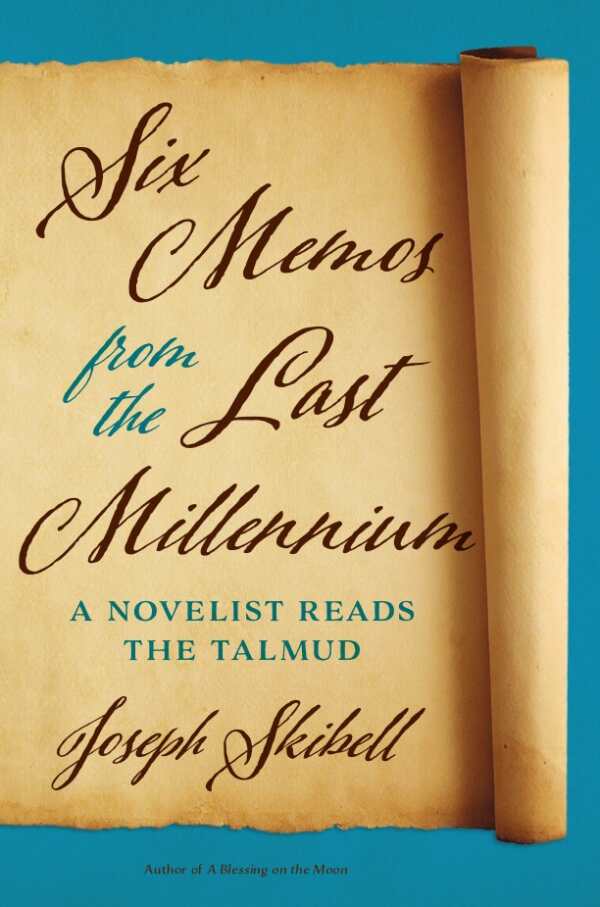Six Memos from the Last Millennium
A Novelist Reads the Talmud
Approaching seemingly impenetrable passages of rabbinic discourse with artful inquisitiveness, Skibell brings early authorities back to life.
Joseph Skibell shifts his incisive gaze from fiction to the Talmud in Six Memos from the Last Millennium, a learned, interdisciplinary dance through Judaism’s theological legal canon.
Skibell begins the project with the frank admission that many of the passages in the Talmud are strange on their face, but he indicates that great beauty resides there, too. A rabbi looks up from the story of Ulla after being asked what’s this about?; his “I don’t know” prompts Skibell’s careful textual journeying.
Approaching seemingly impenetrable passages of rabbinic discourse with artful inquisitiveness, Skibell brings early authorities back to life. The undulations of their stories often veer toward the mythical: gazes that set the world afire; years spent hiding in the sand up to one’s neck; walls held up by sheer force of will, that bend inward as the sacred moves out. To such elements, Skibell adds reflections on the needs and foibles of even the most spiritual human beings: jealousy, fear, and resentment all factor in, as do moments of forced growth, as leading rabbis mature from reactionary to cautious beings, if bent there by the will of God.
The lessons that are drawn from such stories are poignant. Heaven and earth, one’s ancestors and descendants, one’s self and others: these are the foci of the Talmud, Skibell discerns. These dualities become the rabbis’ everythings, as they learn—often in the midst of traumatic narratives—to live betwixt and between. And because these are universal dynamics, connections are drawn between these ancient tales and the words of modern writers and artists, from George Harrison to Proust, with some Shakespeare thrown in for good measure. The holistic nature of Skibell’s project will draw even skeptics in.
The Talmud is a closed canon, and so the insights of Six Memos cannot be added to the milieu of its margins; this comes to seem a loss. At times both as enigmatic and as spiritually attuned as the text upon which it comments, Skibell’s is a gem of a theological exercise.
Reviewed by
Michelle Anne Schingler
Disclosure: This article is not an endorsement, but a review. The publisher of this book provided free copies of the book to have their book reviewed by a professional reviewer. No fee was paid by the publisher for this review. Foreword Reviews only recommends books that we love. Foreword Magazine, Inc. is disclosing this in accordance with the Federal Trade Commission’s 16 CFR, Part 255.

